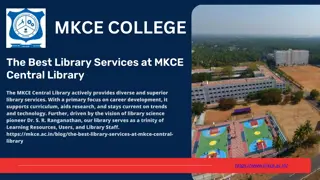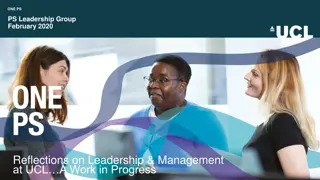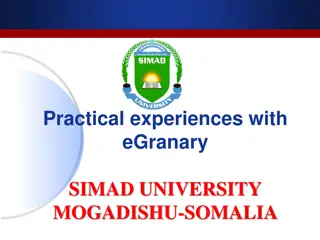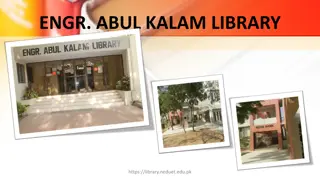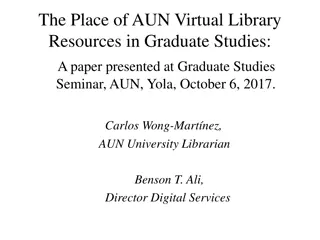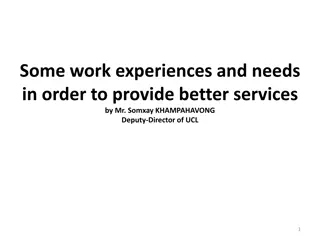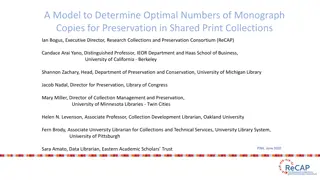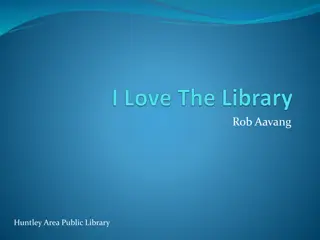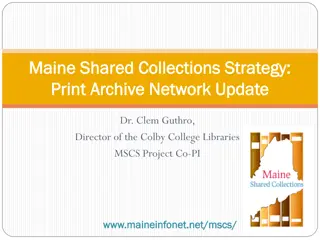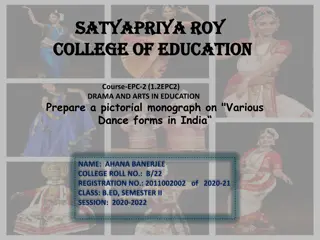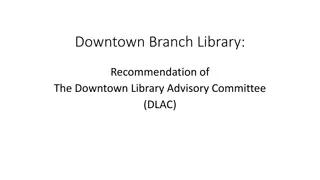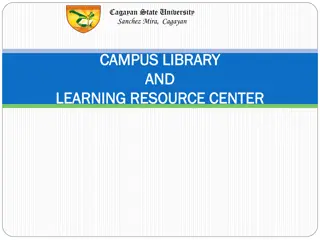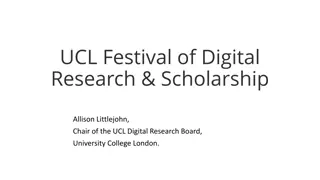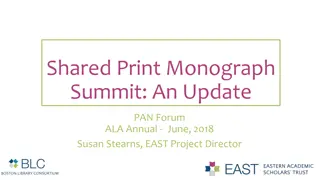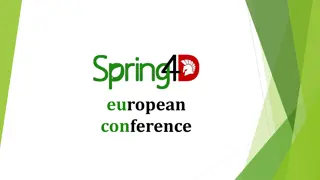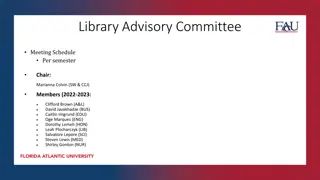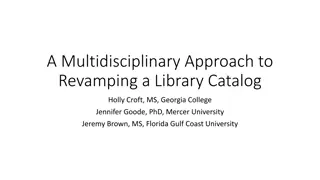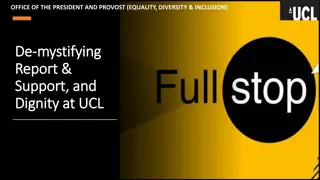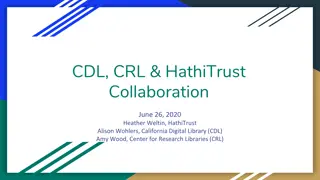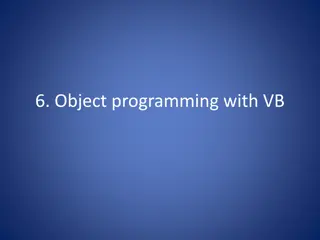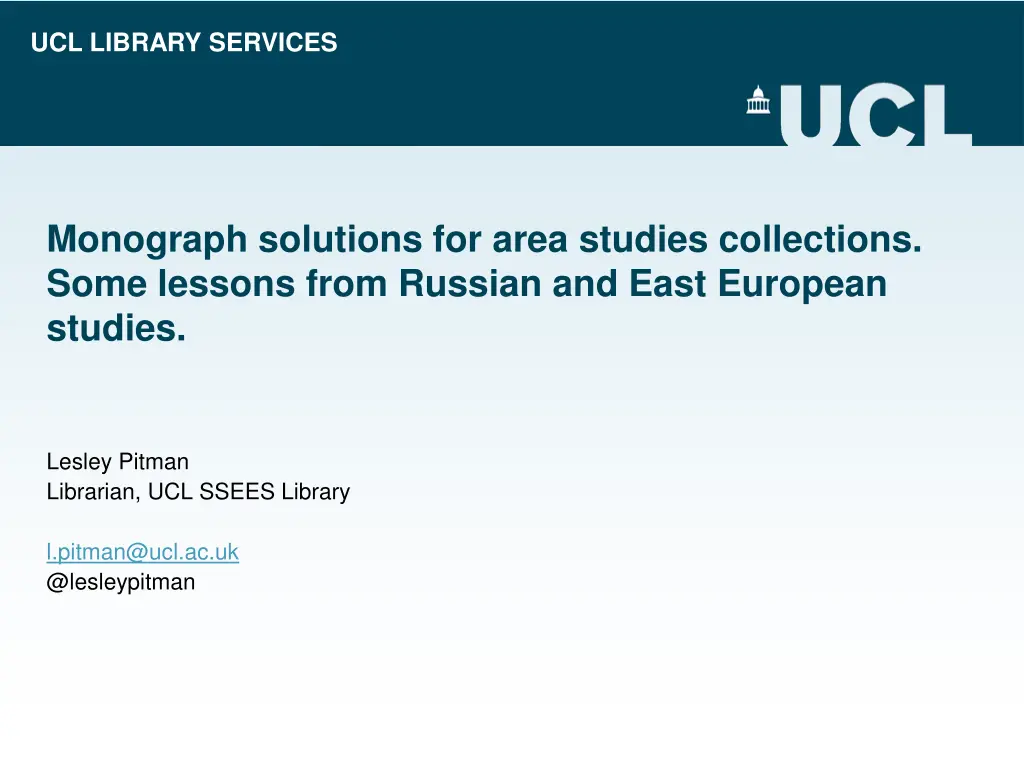
Monograph Solutions for Area Studies Collections: Lessons from Russian and East European Studies
Discover the challenges and achievements in managing distributed national research collections for area studies, particularly focusing on Russian and East European studies. Explore the tools, structures, and protocols needed, along with lessons learned over 17 years. Uncover the goals, problems faced, and desired strategies for a national monograph strategy.
Download Presentation

Please find below an Image/Link to download the presentation.
The content on the website is provided AS IS for your information and personal use only. It may not be sold, licensed, or shared on other websites without obtaining consent from the author. If you encounter any issues during the download, it is possible that the publisher has removed the file from their server.
You are allowed to download the files provided on this website for personal or commercial use, subject to the condition that they are used lawfully. All files are the property of their respective owners.
The content on the website is provided AS IS for your information and personal use only. It may not be sold, licensed, or shared on other websites without obtaining consent from the author.
E N D
Presentation Transcript
UCL LIBRARY SERVICES Monograph solutions for area studies collections. Some lessons from Russian and East European studies. Lesley Pitman Librarian, UCL SSEES Library l.pitman@ucl.ac.uk @lesleypitman
UCL LIBRARY SERVICES Some questions 1. What should area studies groupings do to support the management of a distributed national research collection? 2. What kind of structures / protocols might we need? 3. Do we have the tools we need?
UCL LIBRARY SERVICES What should we be doing? CCM in Russian and East European studies, 1999 to 2016 CURL-Cofor
UCL LIBRARY SERVICES 17 years later, what have we achieved? COCOREES, 1999-2002 12 partners, c 80 collection descriptions, a location list of serials, a national desiderata list CoFor, 2002-2004, 2004-???? 20 partners, a 10 year agreement, protection for the last copy, a tool kit for other subject areas.
UCL LIBRARY SERVICES What have the problems been? Formal arrangements are very time consuming and expensive and need formal infrastructure and support. Specialist listings and guides need maintenance or they are no longer useful. A lot of the important collections are outside HE. Solutions for small specialist subject areas do not scale. There are no penalties for breaking agreements. The nationally supported tools don t work for us. We aren t working to the same goal as the national strategies.
UCL LIBRARY SERVICES What did CoFoR want? To give confidence to partner libraries in their roles and obligations in a national research context, by providing a nationally coordinated framework for the retention, transfer and acquisition of resources within which local decisions on collecting commitments can safely be taken, and to mitigate the consequences for researchers of local pressures on budgets, staffing and space. CoFoR Toolkit, 2004.
UCL LIBRARY SERVICES What does a national monograph strategy want? Less of this
UCL LIBRARY SERVICES And more of this?
UCL LIBRARY SERVICES What do we want? Do we know? If the tools can give us more information about our national or international collection, what do we do with that information? Do we still agree with the CoFoR goals, or do we want something different now? Is one copy enough? What about the gaps where nobody is collecting? What about collections abroad? What about digital surrogates and ebooks from abroad? How do they fit in? Maybe the area studies groups should focus on deciding what the collective collection should look like for overseas publications?

